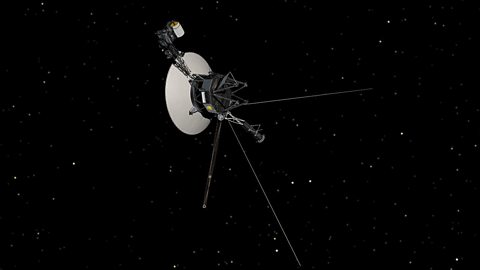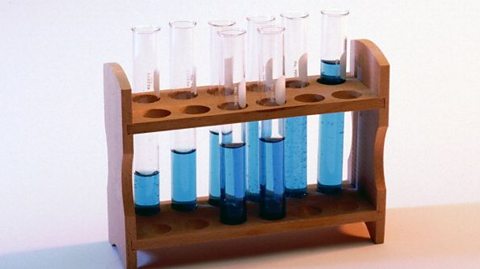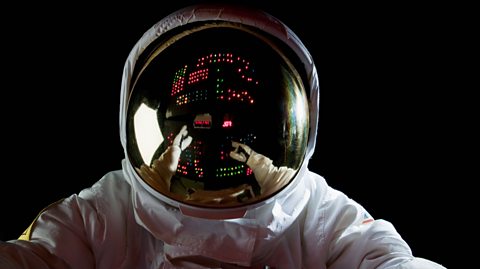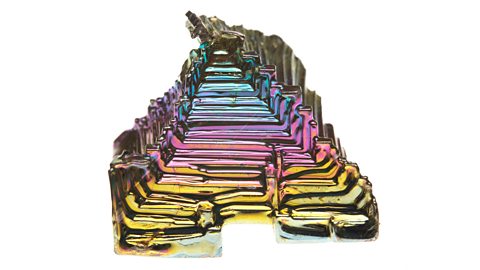From lab-grown meat to driverless cars, itŌĆÖs been a busy decade in the world of science and technology.
It leaves you wondering what unimaginable discoveries and inventions weŌĆÖll be celebrating in ten yearsŌĆÖ timeŌĆ”
But for now, here are our picks of some of the most exciting breakthroughs of the last 10 years.
Water on Mars

Though ice had already been discovered on Mars, in 2018 scientists discovered a liquid lake 1.5 km under the Martian surface. The water remains liquid because of the presence of salt, which reduces waterŌĆÖs freezing temperature. And although it doesnŌĆÖt mean that life exists on our nearest planet, it does give scientists a good idea of where to look for it.
Ebola vaccine

Ebola, which was first identified in 1976, is one of the most deadly, and infectious, viruses on the planet. It kills more than half of those it infects, and the worst outbreak to date, in West Africa in 2014-16, claimed 11,000 lives.
So the announcement in 2016 that a new vaccine was safe and effective was incredibly good news. Together with new drug treatments for those already infected, the vaccine means that Ebola is now a preventable and treatable disease, according to the World Health Organisation.
Landing on a comet

Until this decade, not a great deal was known for certain about what comets are made of. The European Space AgencyŌĆÖs groundbreaking Rosetta spacecraft achieved a multitude of firsts when it orbited and then landed a probe on Comet 67P in November 2014 before deliberately crashing into it to gain further data.
It revealed that the surface contained ammonia, hydrogen cyanide, and hydrogen sulphide ŌĆō meaning that, if you were to sniff it, it would smell like wee and rotten eggs.
But the missionŌĆÖs most dramatic, and less stinky, discovery was that comets also contain organic matter that may even have been the origins of life on Earth.
The Higgs Boson

In 1964 a group of scientists, including British physicist Peter Higgs, predicted the existence of an exotic particle which would help explain how other particles get their mass, one of the most perplexing puzzles in theoretical physics. But until recently the Higgs Boson, as it was named, hadnŌĆÖt actually been detected.
That changed in July 2012 when scientists at CERNŌĆÖs Large Hadron Collider announced that they had finally found a likely candidate for the elusive, and incredibly important particle, before confirming it the following year. That same year Higgs and Belgian scientist Francois Englert were awarded the Nobel prize for their work (but having a particle named after you might be even cooler).
Self-driving cars

Once the stuff of science fiction, self-driving cars became a reality in the 2010s. In 2018 Google announced that over 2 million miles had been driven by its prototype driverless cars. Perhaps even more importantly in 2019 the Department for Transport (DfT) announced plans to allow fully autonomous cars on UK roads by 2021.
Other companies such as Tesla, BMW, and Volkswagen all have driverless cars at various states of readiness, and ride-sharing companies such as Uber and Lyft promise that soon weŌĆÖll be able to hail a driverless taxi, with San Francisco startup Zoox promising an automated ride-sharing service by the end of 2020. But one, more tragic, milestone was the first fatal accident involving a pedestrian and a self-driving car happening in 2018.
Virtual assistants

This was the decade we really began talking to machines. AppleŌĆÖs Siri was the first Virtual Assistant to reach consumers in 2011 and by the end of the decade Siri, along with AmazonŌĆÖs Echo, and GoogleŌĆÖs Assistant are well established tech products sitting in our homes and in our pockets.
While currently theyŌĆÖre pretty much limited to ordering shopping, playing music and controlling smart home devices (as well as telling the odd joke), advances in artificial intelligence mean that they will become ever more proactive and able to predict what we want before we ask. For example, they might raise the temperature in our house when they decide we might be cold, or automatically rebook a meeting when the trains are running late.
Meat-free but meaty and lab-grown burgers

Meat production, particularly of beef and lamb, is one of the biggest contributors to greenhouse gasses, so efforts to create meaty but animal-free meat have intensified in recent years. The main developments in this field have been: an expansion in the plant-based meat substitute market; and the creation of lab-grown meat.
Though veggie and vegan burgers have been around for ages, there are new plant-based meat alternatives which aim to exactly mimic the taste and texture of that juicy burger. For example, some of the new-school veggie patties, such as the Impossible Burger - of which over 25 millions have been sold - 'bleed' when you cook them and when you have them rare.
On the other hand, lab-grown meat uses tissue from animals and grows it in giant bioreactors, so it really is meat - just not finally from an animal. Lab-grown burgers are set to hit the grill next year. Time for a taste test?
Gravitational waves

For theoretical physicists, the discovery of gravitational waves in 2016 was the breakthrough of the century, let alone the decade. These tiny disturbances in space-time, caused by massive interstellar events such as colliding black holes, had been predicted by Einstein in 1916. He thought they were too minute ever to be actually detected.
But exactly a century later in 2016 scientists working at finally discovered them. This was immensely important news because Einstein had predicted their existence, and finally finding them proved that his General Theory of Relativity was right all along.
Quantum computing

In 2019 Google declared ŌĆśQuantum SupremacyŌĆÖ, a way of saying that one of their processors had performed a calculation that was essentially impossible for a conventional computer. The calculation took the Google computer just over three minutes, but would have taken an ordinary machine over 10,000 years. The claim has been disputed by American tech company IBM (who are also developing quantum computers), but whatŌĆÖs certain is that the we have moved closer to creating vastly more powerful computers.
Leaving the Solar System
 Image source, NASA
Image source, NASAThe 2010s was the decade that spacecraft left our solar system for the first time. Voyagers One and Two were both launched in 1977 but took different routes around the planets sending back invaluable data for decades. In August 2012 Voyager-1 entered interstellar space, and Voyager-2 followed it in November 2018. Now the two little spacecraft are living up to their name and voyaging among the stars. Safe travels!
The British scientific discoveries quiz
How much do you know about the inventions and theories pioneered in the UK?

Science fiction or science fact?
It's a Bitesize quiz, Captain, but not as we know it...

The most weird and wonderful elements in the periodic table
Which element was used to create a reusable laxative? Find out here.
